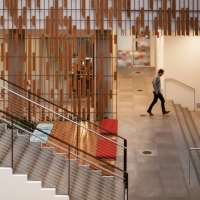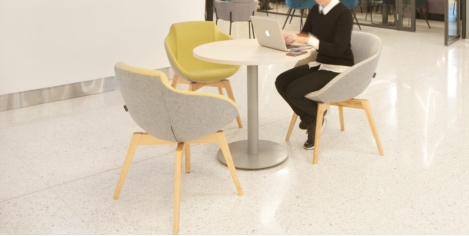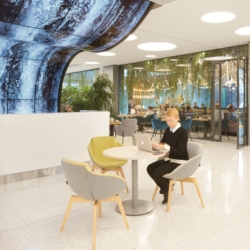To provide the best experiences, we use technologies like cookies to store and/or access device information. Consenting to these technologies will allow us to process data such as browsing behaviour or unique IDs on this site. Not consenting or withdrawing consent, may adversely affect certain features and functions.
The technical storage or access is strictly necessary for the legitimate purpose of enabling the use of a specific service explicitly requested by the subscriber or user, or for the sole purpose of carrying out the transmission of a communication over an electronic communications network.
The technical storage or access is necessary for the legitimate purpose of storing preferences that are not requested by the subscriber or user.
The technical storage or access that is used exclusively for statistical purposes.
The technical storage or access that is used exclusively for anonymous statistical purposes. Without a subpoena, voluntary compliance on the part of your Internet Service Provider, or additional records from a third party, information stored or retrieved for this purpose alone cannot usually be used to identify you.
The technical storage or access is required to create user profiles to send advertising, or to track the user on a website or across several websites for similar marketing purposes.
 A new poll claims that people belonging to “Gen Z” rely heavily on the professional and social structure of the office, with 78 percent finding it easier to bond with colleagues in the workplace and 81 percent feeling disconnected from their peers when working from home. The survey of 3,000 people, from Unispace, claims that the majority (79 percent) of younger workers felt more active when working in the office, while among older workers this figure is 66 percent. More →
A new poll claims that people belonging to “Gen Z” rely heavily on the professional and social structure of the office, with 78 percent finding it easier to bond with colleagues in the workplace and 81 percent feeling disconnected from their peers when working from home. The survey of 3,000 people, from Unispace, claims that the majority (79 percent) of younger workers felt more active when working in the office, while among older workers this figure is 66 percent. More →






































October 5, 2022
Why should anyone care about your change?
by Jennifer Bryan • Business, Comment, JB, Workplace